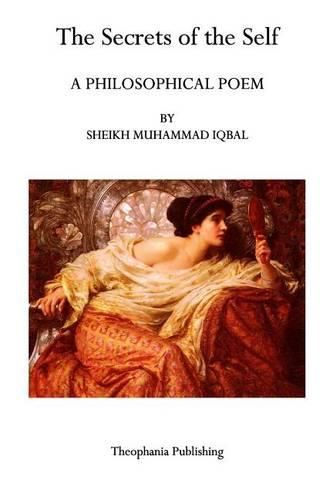Readings Newsletter
Become a Readings Member to make your shopping experience even easier.
Sign in or sign up for free!
You’re not far away from qualifying for FREE standard shipping within Australia
You’ve qualified for FREE standard shipping within Australia
The cart is loading…






THE Asrar-i Khudi was first published at Lahore in 1915. I read it soon afterwards and thought so highly of it that I wrote to Iqbal, whom I had the pleasure of meeting at Cambridge some fifteen years ago, asking leave to prepare an English translation. My proposal was cordially accepted, but in the meantime I found other work to do, which caused the translation to be laid aside until last year. Before submitting it to the reader, a few remarks are necessary concerning the poem and its author. Iqbal is an Indian Moslem. During his stay in the West he studied modern philosophy, in which subject he holds degrees from the Universities of Cambridge and Munich. His dissertation on the development of metaphysics in Persia-an illuminating sketch-appeared as a book in 1908. Since then he has developed a philosophy of his own, on which I am able to give some extremely interesting notes communicated by himself. Of this, however, the Asrar-i Khudi gives no systematic account, though it puts his ideas in a popular and attractive form. While the Hindu philosophers, in explaining the doctrine of the unity of being, addressed themselves to the head, Iqbal, like the Persian poets who teach the same doctrine, takes a more dangerous course and aims at the heart. He is no mean poet, and his verse can rouse or persuade even if his logic fail to convince. His message is not for the Mohammedans of India alone, but for Moslems everywhere: accordingly he writes in Persian instead of Hindustani-a happy choice, for amongst educated Moslems there are many familiar with Persian literature, while the Persian language is singularly well adapted to express philosophical ideas in a style at once elevated and charming.
$9.00 standard shipping within Australia
FREE standard shipping within Australia for orders over $100.00
Express & International shipping calculated at checkout
Stock availability can be subject to change without notice. We recommend calling the shop or contacting our online team to check availability of low stock items. Please see our Shopping Online page for more details.
THE Asrar-i Khudi was first published at Lahore in 1915. I read it soon afterwards and thought so highly of it that I wrote to Iqbal, whom I had the pleasure of meeting at Cambridge some fifteen years ago, asking leave to prepare an English translation. My proposal was cordially accepted, but in the meantime I found other work to do, which caused the translation to be laid aside until last year. Before submitting it to the reader, a few remarks are necessary concerning the poem and its author. Iqbal is an Indian Moslem. During his stay in the West he studied modern philosophy, in which subject he holds degrees from the Universities of Cambridge and Munich. His dissertation on the development of metaphysics in Persia-an illuminating sketch-appeared as a book in 1908. Since then he has developed a philosophy of his own, on which I am able to give some extremely interesting notes communicated by himself. Of this, however, the Asrar-i Khudi gives no systematic account, though it puts his ideas in a popular and attractive form. While the Hindu philosophers, in explaining the doctrine of the unity of being, addressed themselves to the head, Iqbal, like the Persian poets who teach the same doctrine, takes a more dangerous course and aims at the heart. He is no mean poet, and his verse can rouse or persuade even if his logic fail to convince. His message is not for the Mohammedans of India alone, but for Moslems everywhere: accordingly he writes in Persian instead of Hindustani-a happy choice, for amongst educated Moslems there are many familiar with Persian literature, while the Persian language is singularly well adapted to express philosophical ideas in a style at once elevated and charming.